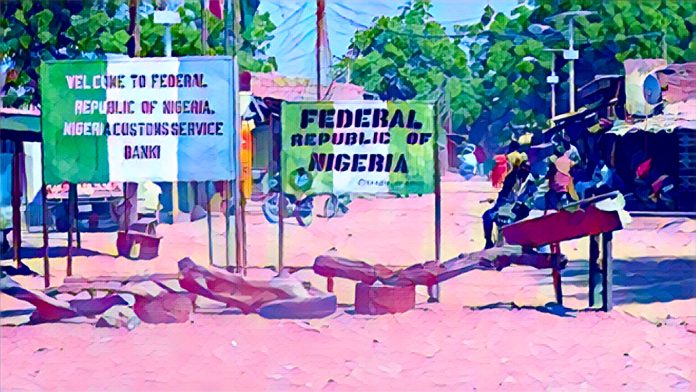KEY POINTS
- Nigeria’s border security is compromised by terrorism, banditry, and smuggling.
- Porous borders and weak enforcement exacerbate Nigeria’s insecurity challenges.
- International collaboration and advanced surveillance can improve Nigeria border security.
Nigeria’s border regions are increasingly becoming hotspots for security challenges, threatening national stability and economic progress. Issues such as cross-border terrorism, armed banditry, and smuggling have worsened, prompting urgent calls for action from both national and international stakeholders.
Cross-border terrorism
The infiltration of extremist groups into Nigeria’s border areas has exacerbated insecurity. Notably, the emergence of the Lakurawa group, which operates in northwestern regions, has raised alarms. The group reportedly stems from Sahelian countries such as Mali and Niger, exploiting Nigeria’s porous borders. Following political instability in Niger, joint military patrols have been disrupted, allowing extremist activities to intensify (VOA News).
Armed banditry and kidnappings
Armed banditry remains a significant concern in northern states. In the first quarter of 2024 alone, at least 68 mass abductions were reported. Bandits exploit inadequate intelligence and porous security measures, often evading law enforcement efforts. The Nigerian military acknowledges that unreliable intelligence from informants has hindered their operations (Reuters).
Smuggling and illicit trade
Smuggling of arms, narcotics, and contraband goods further destabilizes Nigeria’s border regions. These activities fund criminal enterprises while depriving the government of significant revenue. Recent military operations resulted in the seizure of stolen crude oil and the arrest of suspects, but the scale of smuggling operations remains alarming (Reuters).
Porous borders and weak enforcement
Nigeria’s vast and poorly secured borders are a key driver of insecurity. The rugged terrain and lack of advanced surveillance technology allow unchecked movements across borders, facilitating criminal activities (Africa Center for Strategic Studies). Additionally, weak enforcement exacerbates the problem, with reports of corruption and collaboration between security personnel and criminal elements (International Journal of Law, Humanities and Social Sciences).
Government responses
The Nigerian government has deployed troops to border regions and introduced technology-driven border management systems to combat these threats. Collaboration with neighboring countries, such as joint patrols and intelligence sharing, has also been key to addressing cross-border crimes (IOM Nigeria).
Efforts to involve local communities have further strengthened border security, building trust and encouraging cooperation in identifying criminal activities (IOM Nigeria).
International support and recommendations
Foreign partners have supported Nigeria’s border security initiatives through training and capacity-building programs. These efforts aim to bolster Nigeria’s ability to tackle complex border threats effectively (IOM Nigeria).
To combat rising insecurity, experts recommend strengthening surveillance technologies, improving intelligence-sharing mechanisms, and addressing socio-economic issues in border communities. By focusing on these strategies, Nigeria can address the root causes of insecurity and ensure long-term stability.



